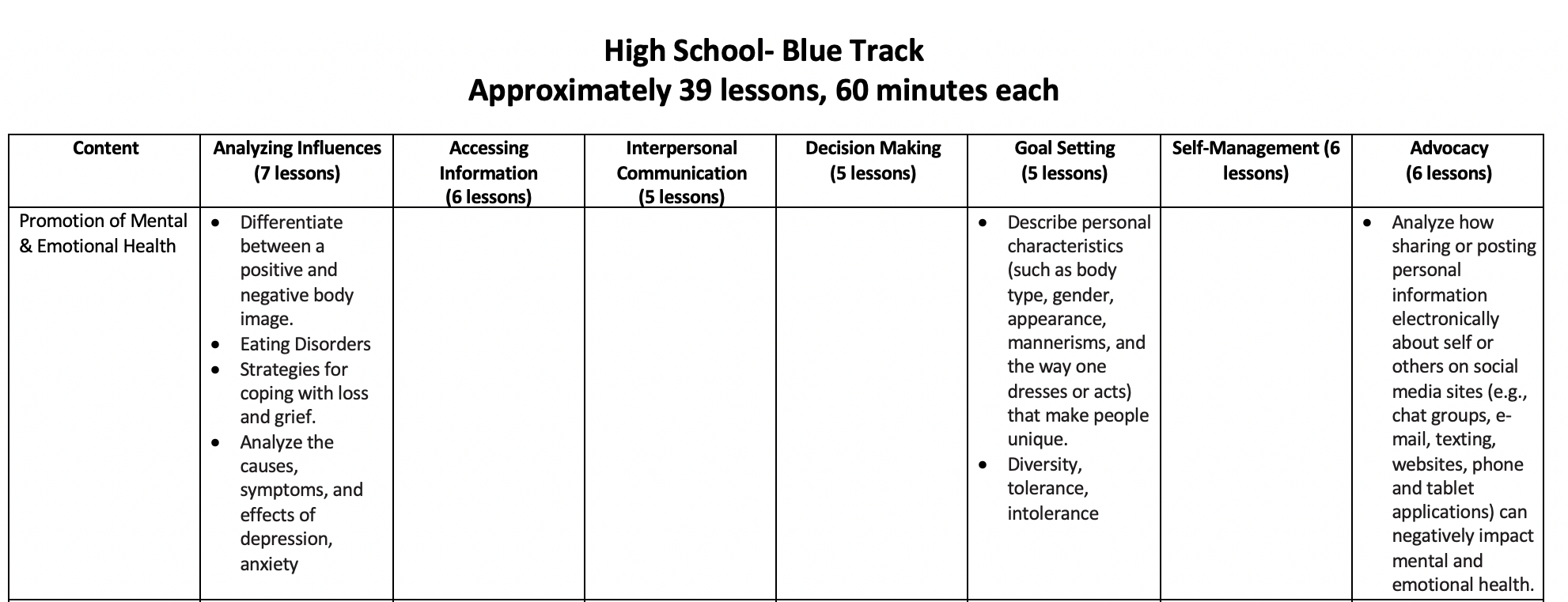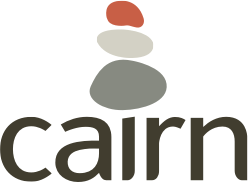Recently I had a big A-HA.
I’d like to throw out my beliefs to see what others think in the health education field. My hope is to engage the conversation broadly so I can continue to form a more comprehensive approach and philosophy and one that is informed by actual practitioners in the field!
>
“Many of us are making the assumption that units based on skills rather than content are a good idea. We have no research to demonstrate this is the case at this point in time.”
While facilitating the 2-day Using a Skills-Based Approach to Health Education Standards & Assessment for our new KAHPERD state health education cadre this past summer, I had an epiphany the evening of the first day. I had the cadre trainers do a 3-2-1 processing activity in which they list 3 things they learned, 2 things they still wonder and 1 thing they’ll take back and use. I had 3 of the trainers write something to the effect of, “I don’t know how I’ll implement a skills-based classroom” for their “2/Wonders”. I was confused. These were the same teachers sharing with me their amazing performance assessments and skills-based lessons just that day!
And then it occurred to me… they somehow received the message that skills-based means that units have to be skills units, not content units. Meaning their units are: Interpersonal Communication (NHES #5), Advocacy (NHES #8) and so on. So- here’s the deal- I’m currently writing a curriculum (one HS unit example is here, but stay tuned because site overhaul and lessons will be up this school year!) that does this. Many leaders in the field (including myself) are advocating for this as well. I’m assuming this is based in what we know- that young people need opportunities to practice skills in order to achieve some sort of health literacy. So- many of us are making the assumption that units based on skills rather than content are a good idea. We have no research to demonstrate this is the case at this point in time.
How does skills-based unit planning work? It means that your unit is called a skill from the NHES (standards 2-8) and you have content, like Substance Use Prevention or Promotion of Sexual Health, that are included within the units as functional information and to provide context for students to practice and demonstrate the skill. See the example below that comes from my Health Literacy 4 Life scope & sequence. There are two high school courses (two tracks- blue and yellow since I didn’t know if I wanted to promote one being taught prior to the other… but that may change based on how content is introduced). This first image is a screenshot of the scope and sequence for the units (skills on top) in the Yellow Track and how the content of Promotion of Mental & Emotional Health & Promotion of Healthy Eating is introduced throughout those different skills-based units.

This next screenshot comes from the high school Blue Track and again, shows the skills units (across top) with how Promotion of Mental & Emotional Health content is infused throughout- in different skills than the Yellow Track! (There is no Promotion of Healthy Eating in the Blue Track since we end up covering other content.)

As we learn more to see if this works for student learning, we may adjust again! It might feel that the content is too chunked-out since you may be covering Mental & Emotional Health over 3 skill-units within both the Yellow and Blue Tracks. Or, it may be a great way for the focus to be skills with the most important information being taught. We don’t quite know.
>
“It might work, it might not matter.”
Back to the cadre responses… the A-Ha was that they assumed the only way to teach skills-based health education is by ensuring your units were by skill with content within. I disagree with that. I clarified with them, that my belief (and again, happy to have healthy dialogue on what others think) is that skills-based can look two ways: skills units, like my examples above, OR content-based units with a clear introduction, practice and skill proficiency progression throughout. Again, we don’t have any evidence that one works better than the other. Skills-based units is a HUGE paradigm shift in our profession. It might work, it might not matter. What matters, to me, as a health education pedagogist is that students have opportunities to be modeled a skill, practice it multiple times within the context of different situations/content & have opportunities to be proficient. With the assumption that if the young person is practicing and becomes proficient in a skill, it will be applied outside of the classroom.
When I explained this to the cadre trainers, they literally exhibited huge sighs of relief. They realized based on my definition that they were still doing skills-based health education. And, their goal is to shift to skills-units. In fact, during the training, they all left with a fully developed skills-based unit informed on local student behavior data, a well-written skills-based performance assessment and rubric to score student work samples!
My suggestion is that teachers work on a progression. Determine how their students are most successful when it comes to becoming proficient in the NHES skills. So- if that means continuing to teach content units and an effective skills progression (use this free RMC Health resource to help with that), that’s great! If it means trying to write one skills-based unit with 2-3 content areas included within it, that’s super! If it means shifting completely to skills-based units, fabulous! I’m not an expert on what might work best. I hope we have the research in the future that informs us as health educators what is best for our young people to become health literate.
I’m still forming my opinion on this topic, so I’m interested in what your thoughts are… feel free to comment on this blog or email me at jess@cairnguidance.com

jess…you planted this seed in thinking years ago with our Oregon HKLB cadre. After 15 years in middle school health ed, I have now made the change to HS, this year I get to teach a semester long "healthful living" course to junior and seniors, in which I am developing everything, there is only a text that was adopted as curriculum (yuck).
When planning at the start of the year I presented this idea to my colleague to shift to skill based units rather than content, they couldn’t wrap their head around that, which i understand. I then got swamped with the start of the year, 4 preps and reverted back to what i know to be comfortable, content based units, with skills built in. As i reflect 5 weeks into the school, we are wrapping up our mental and emotional health unit with an advocacy performance assessment, we have also touched on interpersonal communication, accessing information, analyzing influences within this unit, but not with great depth. Yes, these skills will be covered again, but I am starting to realize that skill based units may really be really what is best for students to make them health literate, especially as the they navigate the world outside of HS. Thank you for the timing of this post, it definitely has been stirring around for me as a plan and take advantage of the this new beginning and transition in my teaching.
Hi Michelle- and so glad to hear. Keep it up and small steps, right? Hope to see you again soon!
Jess
I taught your analyzing influences unit and my students loved it! One thing that I’m struggling with how to match the skills withe content. I’ve found it difficult incorporate both flawlessly. But this is also my first year teaching. Many of my students don’t consider this health but they enjoy it a lot more. I love how authentic you can make the assessments with this approach. I look forward to seeing more on your approach to this.